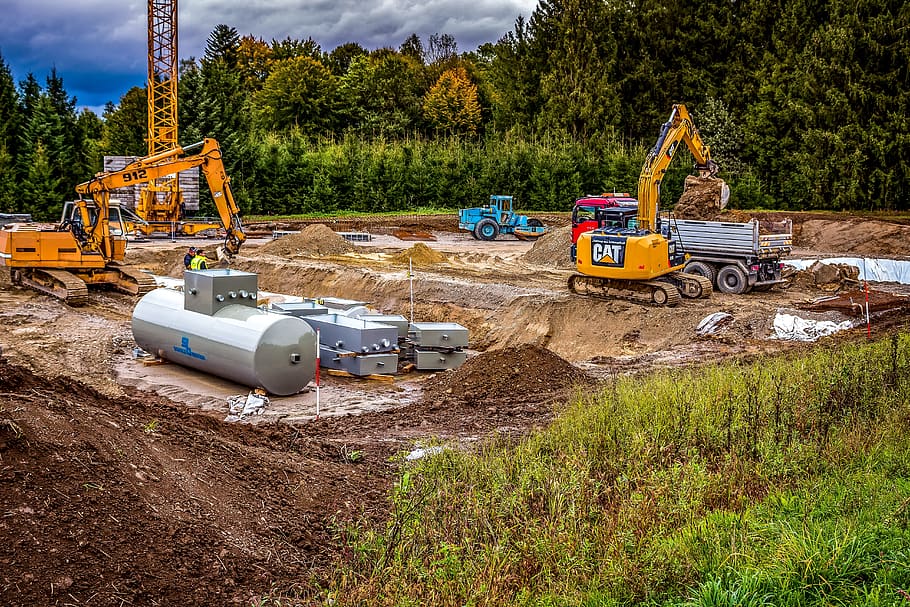
Embarking on an excavation or demolition project in Durham requires careful planning, expert knowledge, and the right equipment. Whether you’re preparing a site for new construction or demolishing an old structure, understanding the key aspects of these processes is crucial. This guide provides actionable insights into excavation, demolition, and waterproofing to help you manage your project efficiently.
The Basics of Excavation
Excavation involves removing earth to prepare a site for construction or other purposes. This process is essential for creating foundations, basements, and other structural elements. When planning an excavation project, consider the following steps:
Site Assessment
Before any digging begins, conduct a thorough site assessment. This includes surveying the land, checking for underground utilities, and understanding soil composition. A professional can help identify potential hazards and ensure compliance with local regulations.
Equipment Selection
Choosing the right equipment is vital for efficient excavation. Depending on the project’s scale, you might need backhoes, bulldozers, or excavators. Ensure the equipment is well-maintained and operated by trained personnel to avoid delays and accidents.
Excavation Techniques
Different techniques suit different projects. For instance, trench excavation is common for laying pipelines, while cut and fill excavation is used for levelling large areas. Understanding these techniques helps in selecting the most effective method for your project.
Key Aspects of Demolition
Demolition involves dismantling or destroying structures safely and efficiently. It requires a strategic approach to minimize risks and environmental impact. Here’s what to keep in mind:
Planning and Permits
Obtain the necessary permits before starting any demolition work. This includes ensuring the project complies with local building codes and safety standards. Detailed planning helps in identifying the sequence of demolition activities and managing waste disposal.
Safety Measures
Safety is paramount in demolition. Implement measures such as securing the site, using protective gear, and controlling dust and debris. Regular safety audits and training sessions for workers can significantly reduce the risk of accidents.
Waste Management
Proper waste management is crucial for minimizing environmental impact. Segregate recyclable materials and hazardous waste, and dispose of them according to local regulations. Partnering with a professional demolition company ensures compliance and efficient waste handling.
Importance of Waterproofing
Waterproofing protects structures from water damage, extending their lifespan and maintaining structural integrity. It’s an essential aspect of both new constructions and existing buildings.
Types of Waterproofing
Several waterproofing methods are available, including:
- Membrane Waterproofing: Applying a protective layer to surfaces.
- Cementitious Waterproofing: Using cement-based materials to seal surfaces.
- Liquid Waterproofing: Applying liquid coatings that harden into a protective layer.
Selecting the right method depends on the project’s specific needs and environmental conditions.
Application Techniques
Proper application is critical for effective waterproofing. Ensure surfaces are clean and dry before applying any waterproofing material. Follow the manufacturer’s guidelines and consider using a professional to guarantee the best results.
Maintenance
Regular maintenance extends the effectiveness of waterproofing. Inspect for signs of wear and tear, such as cracks or leaks, and address issues promptly. Routine maintenance helps in identifying potential problems before they escalate.
Benefits of Hiring Professionals

While some aspects of excavation, demolition, and waterproofing can be managed independently, hiring professionals offers several advantages:
- Expertise and Experience: Professionals bring specialized knowledge and experience, ensuring efficient and safe project execution.
- Quality Assurance: Professional services guarantee high-quality work, reducing the likelihood of errors and costly repairs.
Bringing Your Project to Life
Successfully managing excavation, demolition, and waterproofing projects in Durham requires careful planning, the right equipment, and expert knowledge. By understanding the basics of these processes and the importance of professional services, you can ensure your project runs smoothly and efficiently.
Looking Forward
Embarking on a construction project can be daunting, but with the right approach and resources, it becomes manageable. Whether you’re building a new structure, renovating an existing one, or ensuring it’s protected from water damage, mastering these key aspects will set you on the path to success. Take the time to plan, choose the right methods and equipment, and consider professional help to bring your vision to life efficiently and safely.
